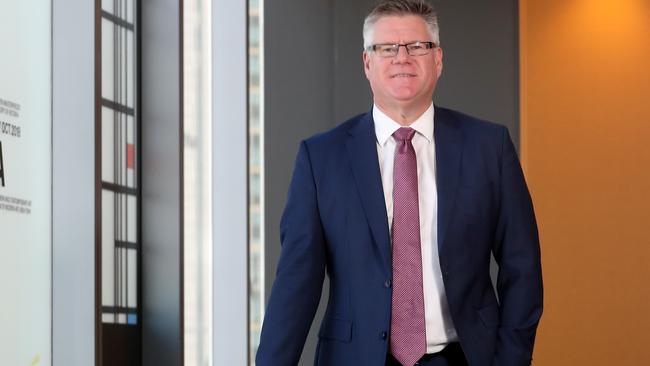
Here, in his own words, is what EY’s Tony Johnson sees ahead in 2020.
Read more from the CEO Survey.
How is your company affected by low-interest rates and what is needed to boost the economy?
Low-interest rates mean debt funding of acquisitions is more attractive, but otherwise there’s no significant impact. Low-interest rates are driving a higher level of M&A and transaction-related business among our clients, particularly with organic growth hard to
come by. If competition is the biggest threat to our economy, complacency is the biggest drag on it. There’s no sense of urgency to make hard choices, like prioritising investment to prepare people and industries for the changing nature of work and improve the resilience of our economy. Growing real wages requires innovation which requires risk-takers, trial and error – that’s a tough ask in an environment with low tolerance for fumbles or failure.
What is the impact of government regulations on your company, including those applying to the financial sector?
The cost, including the impact on productivity of red tape and administration, needs to be addressed – the impost on business and the economy more broadly is significant. As an employer of almost 7000 people, red tape relating to employment is a big drag. Unnecessary regulation does restrict employers from investing, expanding and creating new jobs.
What percentage of company revenues are spent on research and development, and how is your company using technology to improve performance?
Investment in new technologies and ways to deliver our services and enable our business is enterprise-wide and an imperative for the ongoing success of our business. Technology is fundamentally altering the way we deliver services to clients – for example, slashing the time to prepare a GST return for an ASX150 client to minutes (down from three weeks); using real-time analytics to find over $1.5m of tax adjustments for a financial year before lodging a client’s tax return. It’s a challenge to stay at the forefront of cutting-edge practices. We’re collaborating more than ever with start-ups across Taxtech, FinTech, LawTech, RegTech and digital audit in our newly formed EY Foundry accelerator program.
What are the three major policy issues facing the country and what should be done about them?
We are a small, open economy and a price taker on the global stage, so there is not much domestic policy settings can do to influence global growth, but we can try to improve the resilience of our economy by focusing on:
● Productivity: falling productivity growth means we need structural reform and an ecosystem of innovation to drive long-term economic growth;
● Energy: a national policy, that meets and balances the energy trilemma of delivering secure, affordable and environmentally sustainable energy, including certainty and a path forward for investment in renewables to help respond to climate change; and
● Infrastructure: co-ordinated investment in energy, agriculture, transport and digital infrastructure is in the public interest and will boost productivity and economic growth.
What are the major impediments to long-term growth facing your company and what can or is being done about them?
Talent/skills – it’s easier to find clients than it is to find the talent to serve them, so attracting and retaining quality candidates will continue to underpin EY’s success. There are two elements to this: things we control and the policy environment we operate in. On the former, we know from our own research that flexibility is the secret sauce to higher staff engagement – it is the No.1 driver of retention at EY. We’ve introduced more than a dozen initiatives in the past three years related to flexibility, allowing our people to manage personal commitments and pursue passions outside of work, like three months of “life leave”, school term arrangements, etc. The prize when we get this right is substantial - a 1 per cent improvement in staff retention equates to a potential saving of $5.3m annually that we can reinvest in growth.




Every year The Australian’s John Durie asks some of the biggest names in Australian business five key questions about what’s coming in the year ahead.